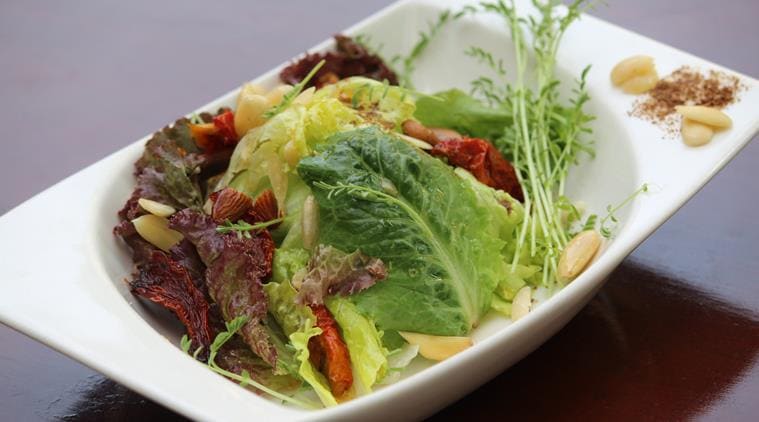Damaged salad contains Salmonella bacteria

A study suggests that damaged salad leaves, packed in plastic container, encourages growth of Salmonella bacteria. The study from the University of Leicester also found that juices released from damaged leaves also enhance the pathogen’s ability to attach to the salad’s plastic container. The research is published in Applied and Environmental Microbiology, a journal of the American Society for Microbiology.
In the study, salad juices in water–to mimic the grocery salad bag environment–more than doubled motility or movement of individual Salmonella bacteria, abetting salad leaf colonization.
In the course of a typical five-day refrigeration storage time, around 100 Salmonella bacteria multiplied to approximately 1,00,000 individual bacteria.
Salad juices also boosted formation of biofilms on salad leaves. Microbial biofilms generally cling tenaciously to the surfaces they coat–medical implants, stainless steel or one’s teeth in the form of dental plaque–and Salmonella biofilms on salad leaves are no exception. They are powerfully resistant to being washed off.
Yet surprisingly, the normal microbial flora on salad leaves did not respond to leaf juices, suggesting that the leaf juices give Salmonella a marked advantage in colonizing salad leaves as compared to competing bacteria, according to the report.
Salad leaf crops are usually grown in open fields where they can be exposed to Salmonella via insects, bird poop and manure among other sources. While outbreaks of Salmonellosis due to such contamination are uncommon, they are nonetheless a public health problem.
Such outbreaks may occur despite practices used to mitigate the problem such as irrigation with clean water, good hygiene, leaf washing, and the like, said co-author Primrose Freestone, PhD, Associate Professor in Clinical Microbiology, University of Leicester, UK. In fact, salad leaves can acquire Salmonella from recycled wash water, she said.
Moreover, earlier studies have shown that Salmonella are so powerfully attracted to salad leaf and root juices that they can find their way into the plant vasculature during the salad plant’s germination, and once inside, there is no way to wash them out, said Freestone.
Salmonella grows especially well on spinach, said Freestone.
Pre-prepared salads are sold increasingly commonly in grocery stores, said Freestone. They also appear in fast food and in airline meals.
However, few studies had previously investigated the behavior of Salmonella within ready-to-eat bagged salad, she said.
“We wanted to investigate what happens to Salmonella in a bag of salad to better understand the potential risks to consumers and inform future research on reducing attachment of this pathogen to salad leaves. This study is part of our ongoing research into ways to reduce the risk of Salmonella persisting and growing when it is present in bagged salad,” she added.
[“source-indianexpress”]



